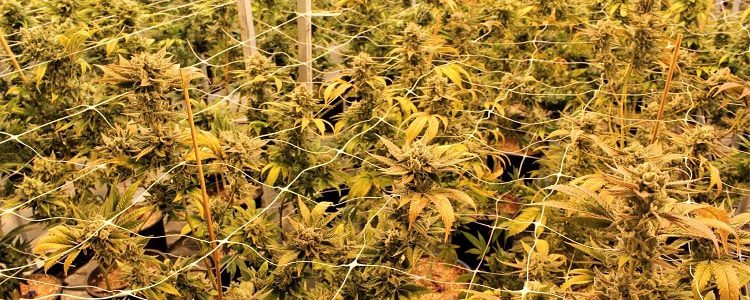Uncle Cliffy On Recent Federal Anti-Cannabis Statements
On Thursday, February 23rd White House press secretary Sean Spicer stated that he expects ‘greater enforcement’ of federal cannabis prohibition laws. Mr. Spicer was speaking at a White House press briefing, and indicated that the ‘greater enforcement’ would be directed at states that have voted to legalize cannabis for adult use (Colorado, Washington, Oregon, Alaska, California, Nevada, Maine, and Massachusetts).
Sean Spicer stated the following about opioids and cannabis, “When you see something like the opioid addiction crisis blossoming in so many states around this country, the last thing we should be doing is encouraging people.” Mr. Spicer stated at the time that it would be up to the Department of Justice to decide how to deal with federal cannabis enforcement. The Department of Justice did not comment at the time, but United States Attorney General Jeff Sessions has since made statements about federal cannabis policy.
Jeff Sessions is a longtime cannabis reform opponent, having once supported a bill that would have resulted in some cannabis convictions being punishable by execution. As recently as April 2016 Jeff Sessions had indicated that he didn’t think that cannabis consumers were good people. So it comes as no surprise to see Jeff Sessions make the following statements this past Monday, per Politico:
“Most of you probably know I don’t think America is going to be a better place when more people of all ages and particularly young people start smoking pot,” Sessions said during an exchange with reporters at the Justice Department. “I believe it’s an unhealthy practice and current levels of THC in marijuana are very high compared to what they were a few years ago.”
“We’re seeing real violence around that,” Sessions said. “Experts are telling me there’s more violence around marijuana than one would think and there’s big money involved.”
“I’m definitely not a fan of expanded use of marijuana,” he said. “States they can pass the laws they choose. I would just say it does remain a violation of federal law to distribute marijuana throughout any place in the United States, whether a state legalizes it or not.”
In a speech to state attorney generals today Jeff Sessions also stated the following:
“I’m not sure we’re going to be a better, healthier nation if we have marijuana being sold at every corner grocery store. Marijuana is a cure for opiate abuse? Give me a break. This is the kind of argument that has been made out there. It’s just almost a desperate attempt to defend the harmlessness of marijuana or even its benefits. I doubt that’s true. Maybe science will prove I’m wrong. But at this point in time you and I have a responsibility to use our best judgement, that which we’ve learned over a period of years and speak truth as best we can.”
The opinions expressed by Mr. Spicer and Mr. Sessions are not based upon facts. As NORML points out, “Marijuana legalization has not lead to increased crime or violence, but rather is associated with lowered youth use rates and access, increased tax revenue, and fewer arrests of otherwise law abiding American citizens.” A crackdown by the federal government is not only unwarranted for the reason Sean Spicer expressed (fictitious increased violence), but it would push customers from a regulated market back into an unregulated one which could actually increase the risk of a cannabis consumer being exposed to violent situations.
Cannabis policy needs to be based on science, not political rhetoric. Mr. Sessions’ attempt to tie cannabis legalization to the opioid crisis is not just wrong, it’s harmful. Multiple studies have shown that increased access to cannabis results in less opioid use. A federal crackdown would lead to more people using opioids, which is a scenario that the Trump administration claims to want to avoid. If the Trump administration truly felt that way, the last thing it should want to do is crackdown on legal cannabis states.
On the campaign trail candidate Donald Trump stated that he would leave cannabis policy up to the states. Voters in 8 states have spoken loud and clear that they think that prohibition has failed, and that it’s time for a more sensible approach to cannabis policy. Cannabis legalization is working by every measure in states where it exists, and there is zero upside to ‘greater enforcement’ of federal prohibition. Poll results that were released on the same day as Spicer’s comments (February 23rd) found that 71% of respondents did not want to see federal enforcement of cannabis prohibition in states that have voted to legalize cannabis for adult use. The Uncle Cliffy team hopes that president Trump will stand by his campaign promise to respect states rights, and and allow legal states to proceed without federal intervention.

